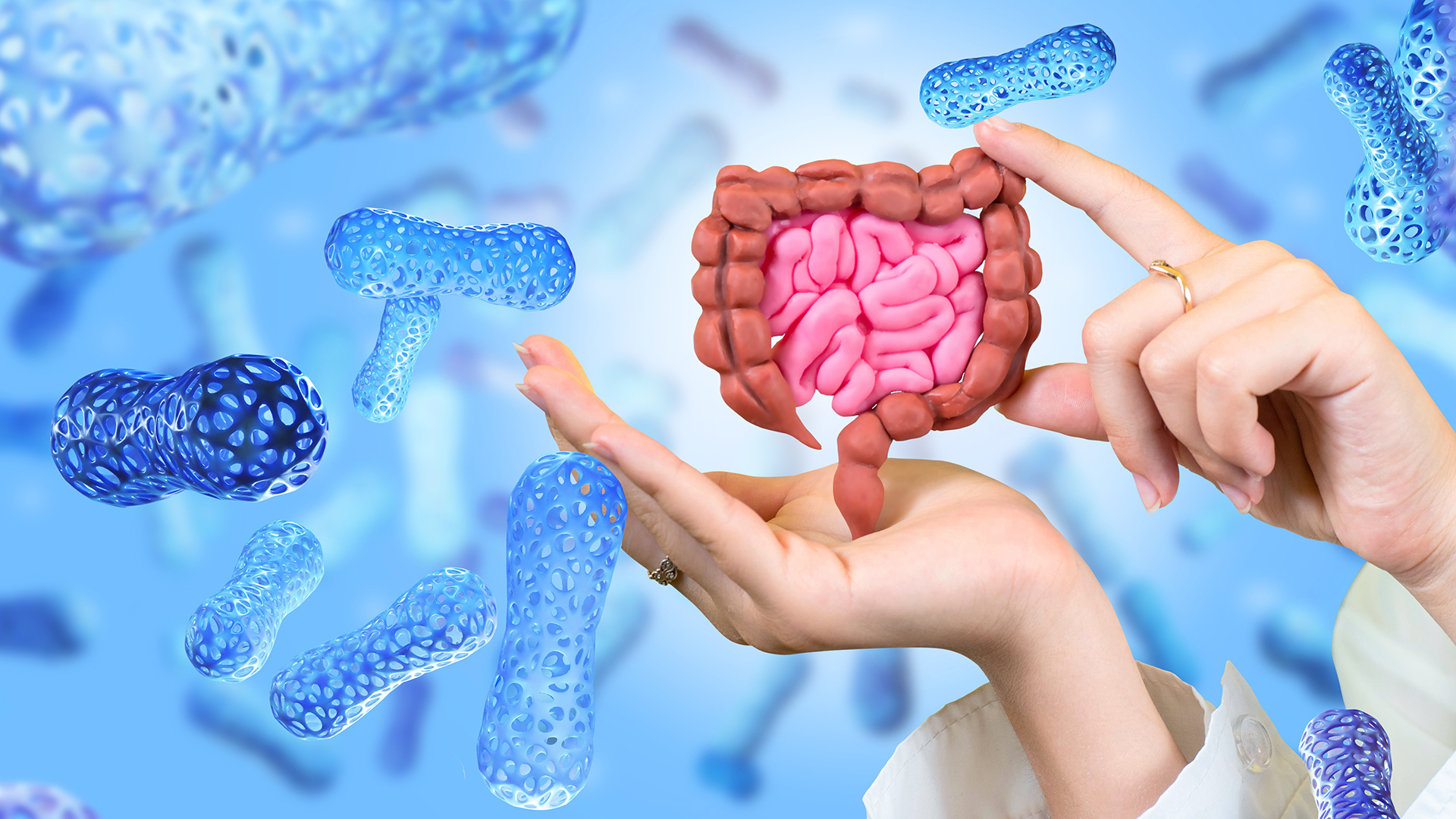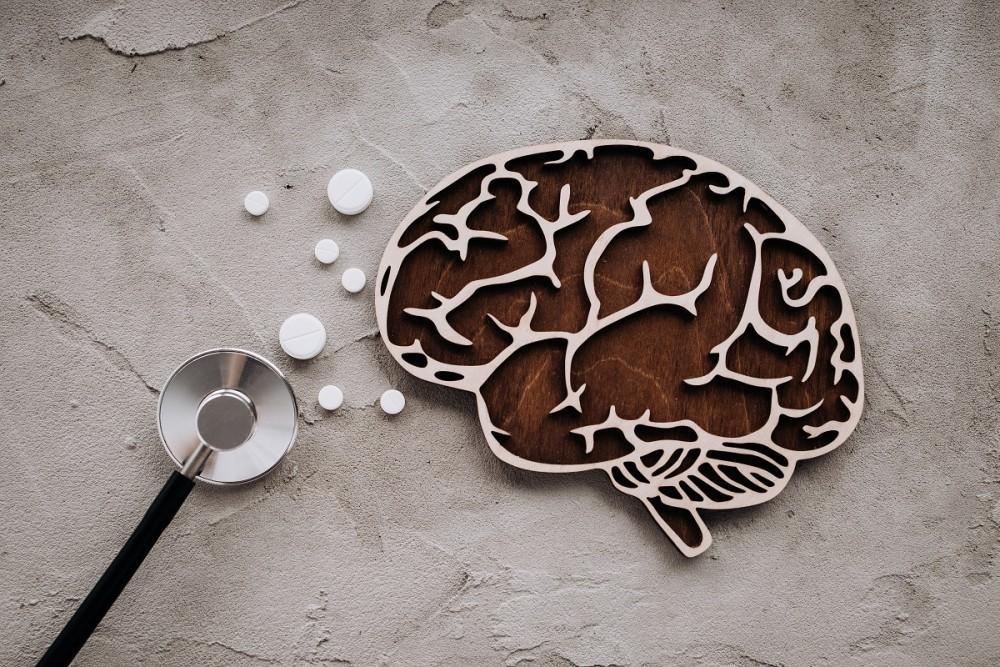
It is now a common belief that gut microbiota communicates with the central nervous system through neural, endocrine, and immune routes, and thereby controls brain function. Studies have demonstrated a substantial role for the gut microbiota in the regulation of anxiety, mood, cognition, and pain.
The role of the microbiome and micro biota-derived molecules in regulating such interactions; however, the mechanisms underpinning such effects are only beginning to be resolved. Microbiota–gut peptide interactions are poised to be of great significance in the regulation of gut-brain signaling. Given the emerging role of the gut-brain axis in a variety of brain disorders, such as anxiety and depression, it is important to understand the contribution of bidirectional interactions between peptide hormones released from the gut and intestinal bacteria in the context of this axis. Gut peptides in the systemic circulation can bind cognate receptors on immune cells and vagus nerve terminals thereby enabling indirect gut-brain communication. Gut peptide concentrations are not only modulated by enteric microbiota signals but also vary according to the composition of the intestinal microbiota. In this review, we will discuss the gut microbiota as a regulator of anxiety and depression, and explore the role of gut-derived peptides as signaling molecules in microbiome–gut-brain communication.

Gut Microbiota
The diversity and stability of the microbiota are important indices for the overall health of an individual. The gut microbiota may impact host health via the conversion of non-digestible carbohydrates to short-chain fatty acids (SCFAs) transformation of bile acids action against pathogenic bacteria and the modulation of host innate and adaptive immune systems.
Microbiota – Gut Brain Pathways
The brain and the gut are engaged in continuous bidirectional communication. Such communication may be important in mediating physiological effects ranging from GI function to the brain and behavior, bringing about the perception of visceral events such as nausea, satiety, and pain. Gut-brain communication may begin as sensory information from the GI tract and is consequently transformed into neural, hormonal, and immunological signals. These signals can independently or cooperatively relay information to the Central Nervous System (CNS). Peptides are short chains of amino-acid monomers linked by amide bonds (approximately ≤ 50 amino-acid residues) that can be released from specialized neurons in the brain (where they are called neuropeptides) or in EECs as a signaling molecule through binding G protein-coupled receptors Many of the peptides found in EECs and in CNS regulating the GI tract are also found in the enteric nervous system.
The gut microbiota, the collection of microorganisms in our digestive tract, plays a significant role in regulating brain function and can influence mood, anxiety, cognition, and pain.
Gut Microbiota in Anxiety and Depression
I. Gut Microbiota Changes in Mood Disorders:
A. Altered Microbial Composition:
In animal studies, depressive-like rats showed increased relative abundances of Bacteroidetes and decreased levels of Firmicutes. Chronic stress in mice was associated with reduced levels of the genus Bacteroides and increased populations of the genus Clostridium. These changes in microbial composition may be influenced by gut metabolites involved in the metabolism of neurotransmitters, such as serotonin, with implications for gut-brain axis signaling.
B. Antibiotics and Psychiatric Disorders:
Certain antibiotics, including β-lactams and tetracyclines, have demonstrated potential antidepressant properties in both rodents and humans. However, epidemiological studies have also suggested an association between the use of certain antibiotics (e.g., fluoroquinolones) and the development of depression and anxiety. The precise mechanisms underlying these associations remain unclear.

II. Unraveling the Gut-Brain Axis:
A. Host-Microbiota Interactions:
The exact impact of gut microbiota on the metabolic phenotype of individuals with psychiatric illnesses remains unknown. However, these observations underscore the potential link between gut microbiota and depression and anxiety. Understanding the gut-brain axis and the interplay between gut microbiota and the central nervous system (CNS) could lead to important insights into the pathophysiology of psychiatric disorders.
B. Investigative Approaches:
Various investigative approaches can shed light on the role of the gut microbiota in psychiatric disorders. These include studies using germ-free rodents, animals with pathogenic bacterial infections, animals exposed to probiotic agents or antibiotics, as well as studies involving prebiotics and fecal microbiota transfer from animals or humans. Such approaches have the potential to unveil novel therapeutic strategies for the prevention and treatment of anxiety and depression.
Conclusion
Research has increasingly highlighted the crucial role of the gut microbiota in regulating brain function and its impact on anxiety, mood, cognition, and pain. While the mechanisms underlying these effects are still being unraveled, it is becoming evident that the interactions between gut peptides and the microbiome play a significant role in gut-brain signaling. The bidirectional communication between the gut and the brain, mediated by neural, hormonal, and immunological signals, has implications for various brain disorders, including anxiety and depression.
Frequently Asked Questions (FAQs)
1. How does the gut microbiota affect mood and anxiety?
The gut microbiota produces metabolites that can influence neurotransmitter production and signaling, such as serotonin, which plays a role in mood regulation. Imbalances in the gut microbiota have been associated with an increased risk of mood disorders and anxiety.
2. Can changing my diet improve my gut microbiota and mental health?
Dietary changes can impact the composition and diversity of the gut microbiota. Consuming a diet rich in fiber and fermented foods, such as fruits, vegetables, whole grains, and yogurt, can promote a healthy gut microbiota and potentially improve mental well-being.
3. Are probiotics beneficial for mental health?
Probiotics are live microorganisms that can provide health benefits when consumed. Some research suggests that certain strains of probiotics may have a positive impact on symptoms of depression, anxiety, and stress. However, more studies are needed to determine the specific strains and dosages that are effective.
4. Can antibiotics affect mental health through their impact on the gut microbiota?
Antibiotics are designed to kill harmful bacteria but can also disrupt the balance of beneficial bacteria in the gut. Studies have found a link between antibiotic use and an increased risk of developing depression and anxiety. However, more research is needed to understand the mechanisms behind this association.
5. How can the gut-brain axis be targeted for therapeutic interventions?
Researchers are exploring various approaches to modulate the gut-brain axis for therapeutic purposes. These include the use of probiotics, prebiotics (substances that promote the growth of beneficial bacteria), fecal microbiota transplantation, and dietary interventions. Ongoing studies aim to determine the effectiveness and safety of these interventions for treating mental health disorders.
Disclaimer: The information and other content provided in this blog, or in any linked materials, are not intended and should not be construed as medical advice, nor is the information a substitute for professional medical expertise or treatment. If you or any other person has a medical concern, you should consult with your healthcare provider.
Reference
- https://pmc.ncbi.nlm.nih.gov/articles/PMC10384867/#:~:text=Several%20gut%20microbiota%2C%20especially%20Firmicutes,depression%2C%20and%20other%20mental%20disorders.
- https://pmc.ncbi.nlm.nih.gov/articles/PMC10146621/
- https://www.cas.org/resources/cas-insights/how-your-gut-microbiome-linked-depression-and-anxiety



.png)


